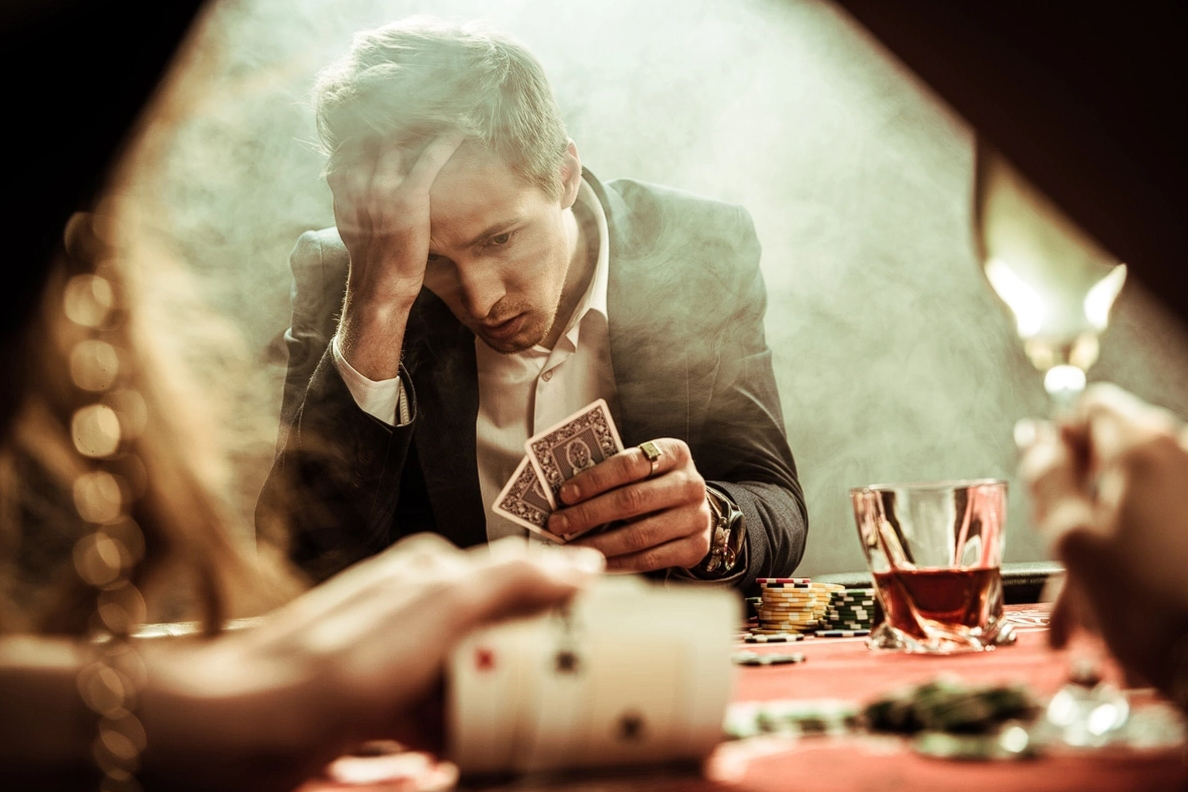Gambling can be an enjoyable pastime for many, offering excitement and the potential for financial gain. However, for some individuals, gambling can become a serious addiction with devastating consequences. Recognizing the signs of gambling addiction is crucial for seeking help and preventing further harm. This article explores the signs of gambling addiction and provides insights into how to identify and address this issue.
Understanding Gambling Addiction
Gambling addiction, also known as compulsive gambling or gambling disorder, is a condition where an individual has an uncontrollable urge to gamble, despite the negative consequences it may cause. This addiction can lead to financial, emotional, and social problems, affecting not only the individual but also their loved ones.
What Causes Gambling Addiction?
- Psychological Factors: Gambling can provide a temporary escape from stress, anxiety, or depression, leading to a cycle of addiction.
- Biological Factors: Some individuals may be more predisposed to addiction due to genetic factors or brain chemistry.
- Environmental Factors: Exposure to gambling at a young age or living in an environment where gambling is prevalent can increase the risk of addiction.
The Impact of Gambling Addiction
- Financial Problems: Gambling addiction can lead to significant financial losses, debt, and even bankruptcy.
- Relationship Issues: The strain of addiction can cause tension and breakdowns in personal and professional relationships.
- Mental Health: Gambling addiction can exacerbate mental health issues, leading to increased stress, anxiety, and depression.
Recognizing the Signs of Gambling Addiction
Identifying the signs of gambling addiction is the first step toward seeking help and recovery. Here are some common signs to look out for:
Behavioral Signs
- Preoccupation with Gambling: Constantly thinking about gambling and planning the next betting session.
- Increased Betting: Needing to bet more money to achieve the desired excitement or thrill.
- Chasing Losses: Attempting to win back losses by gambling more, leading to a cycle of increasing bets.
- Secretive Behavior: Hiding gambling activities from friends and family, or lying about the extent of gambling.
Emotional Signs
- Mood Swings: Experiencing extreme highs and lows based on gambling outcomes.
- Irritability: Feeling restless or irritable when trying to cut down or stop gambling.
- Guilt and Shame: Feeling guilty or ashamed about gambling behavior and its consequences.
Financial Signs
- Unexplained Debt: Accumulating debt or financial problems due to gambling losses.
- Borrowing Money: Frequently borrowing money from friends, family, or financial institutions to fund gambling activities.
- Neglecting Responsibilities: Prioritizing gambling over financial responsibilities, such as paying bills or saving money.

The Path to Recovery
Recognizing the signs of gambling addiction is the first step toward recovery. Seeking professional help and support is essential for overcoming this condition.
Seeking Professional Help
- Therapy and Counseling: Working with a therapist or counselor who specializes in addiction can provide the tools and strategies needed for recovery.
- Support Groups: Joining support groups, such as Gamblers Anonymous, can offer a community of individuals who share similar experiences and challenges.
Developing Healthy Habits
- Setting Boundaries: Establishing clear boundaries around gambling, such as setting limits on time and money spent.
- Finding Alternatives: Engaging in alternative activities that provide enjoyment and stress relief, such as exercise, hobbies, or socializing with friends.
Building a Support Network
- Open Communication: Talking openly with friends and family about the challenges of gambling addiction can provide a support system for recovery.
- Accountability: Having someone to hold you accountable for your actions can help maintain progress and prevent relapses.
Preventing Gambling Addiction
Preventing gambling addiction involves developing a healthy relationship with gambling and being aware of the risks involved.
Setting Limits
- Time Limits: Setting specific time limits for gambling activities can help prevent excessive betting.
- Budget Limits: Establishing a budget for gambling and sticking to it can prevent financial problems.
Staying Informed
- Education: Learning about the risks and signs of gambling addiction can help individuals make informed decisions about their gambling habits.
- Awareness: Being aware of personal triggers and vulnerabilities can help prevent the development of an addiction.
Seeking Support Early
- Early Intervention: Seeking support at the first signs of a problem can prevent the progression of gambling addiction.
- Professional Guidance: Consulting with a professional can provide strategies for maintaining a healthy relationship with gambling.
Conclusion
Gambling addiction is a serious condition that can have devastating consequences. Recognizing the signs of gambling addiction is crucial for seeking help and preventing further harm. By understanding the causes, impacts, and signs of gambling addiction, individuals can take the first steps toward recovery. Seeking professional help, developing healthy habits, and building a support network are essential for overcoming gambling addiction and maintaining a healthy relationship with gambling.
